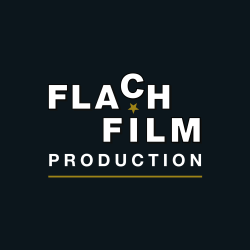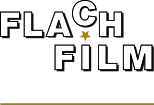Interview de Gilles de Maistre concernant KILLER KID-627
In fact, it’s the opposite. I wanted to make movies before I started working as a reporter. Some people enter the movie business through advertising, writing or working as assistants, I did it through journalism. I started by making reports on reality and I fed off this the day I decided to move onto the fiction. In fact, reporting was a pretext that lasted four or five years. I studied at the CFJ journalism school rather than at the FEMIS film school. At the time, the film school didn’t seem to me to be the ideal network to get into film. I had the impression that its main purpose was to train technicians.
There is one name that must be mentioned, that of René Clément, your great-uncle. I imagine that he has a role to play in your desire to make films ?
It fascinated me when I was a kid. I didn’t talk to him about it much because of our great age difference. But I wrote essays on him at school… and when I told him that I wanted to be an actor, he made sure I dropped the idea! I was fascinated by the man and very impressed when I visited his film sets. My desire to make films probably comes from that. In fact, I’ve slipped a tribute to Jeux interdits into my film.
Before acting out your desires, what kind of films did you dream of ?
It covered several periods… The French masters, such as René Clément, and the modern American masters: Coppola, Scorsese, Kubrick…
All the themes tackled in your reports, Banlieues, J’ai douze ans et je fais la guerre… are social subjects that deal with suffering and, in particular, that of children. This is the theme of Killer Kid. Why did you decide to continue along this path? ?
It’s probably a result of my personal background. I had a bourgeois, sheltered childhood, in the smartest area of Paris, in religious schools, etc. In short, until I was 20, I knew nothing of life. I needed to learn. That’s why I travelled around the world with my camera… It was an initiation that has continued with Killer Kid. An exploration of the world’s worst reality. I don’t see what I could have talked about at twenty… Holidays in St Tropez? For my parents, I was going to follow the high road: business school, high-flying executive… At the time, I was disgusted by all that. My work as a reporter helped me build my own personality.
Does the fact of having witnessed such dramas help with the recreation of fiction ?
My ambition isn’t to make documentaries for the cinema: those are two distinct trades. I don’t think that a true reporter can easily make movies. My past experience doesn’t count. It’s a life experience. I never really felt that I was a journalist and I never considered that I was doing a job. What I have taken from my reporting to make movies is simply what I have experienced. It’s neither a technique, nor a job, nor an approach. Just emotions inscribed within me… With the cinema, I started from scratch again. I discovered a trade that was the opposite of the one that I was plying. As a reporter, I was alone with my camera, I positioned it in relation to reality: here, everything had to be reinvented. As for the work with the actors, I had always worked with people who were living their lives… I didn’t need to direct them! So I followed some directing and acting workshops and I knew a little about the work since I had done a little stage acting in my youth. And then the first day of shooting came along. A little tension, of course, a sort of anxiety but above all a dream coming true.
The theme of unhappy childhood is a recurrent feature of your reports. Your first film also deals with it. Chance or
necessity ?
It’s a combination of circumstances, there’s no chance in life. I’m interested in childhood for a number of reasons, and probably because it also allows me to examine my own… Children are fascinating to film because they always surprise you. When I started shooting my reports, there wasn’t much talk of their suffering. For years, all this violence that I witnessed filled me to such an extent that it was logical for me to come across a story that would provide an echo for it. When I discovered Claude Klotz’s book, I was just finishing Banlieues and starting work on J’ai douze ans et je fais la guerre. I had been filming in a housing project in Gennevilliers and I was catching a flight to Israel to film Palestinian kids in Gaza and the occupied territories. At the airport, I bought this book, Killer Kid. The book starts in the Palestinian camps and ends in Gennevilliers. It was a sign. Claude Klotz knew my reports and he felt that I was the person who could film this story. He gave us a lot of help, notably where the rights were concerned. However, he didn’t intervene in the adaptation, because he doesn’t like reworking his stories. And, besides, I wanted to do a very free adaptation.
Was the film difficult to set up?
Yes and no. Jean Drucker always supported me and encouraged me. Even so, it took four years! People tell me that isn’t very long for a first film but it seemed pretty long to me! Over those fours years, if you simply concentrate on the work completed, there’s a lot of waiting. On a concrete level, it takes three or four months to write the screenplay, two months are spent in preparation, two months shooting and three months editing. Over that period, I also had the time to shoot seven 52-minute TV programmes!
Did you have any particular problems with the two young actors?
The first problem was finding them! We saw hundreds of kids. As for my reports, I really worked on instinct. We did all the usual tests but I have too admit that when I first saw Teufik and Younesse I knew right away it was them. I always choose the kids I’m going to film on instinct. I worked with them in my directing workshop and with Pascal Luneau, a coach who has worked with quite a lot of actors (notably Anne Parillaud for Nikita). The four of us explored the screenplay in depth, the dialogue and situations. Once we started shooting, the boys had totally integrated the screenplay.
Did you have any problems because of the film’s political theme ?
No, people understood that our aim wasn’t to talk about the Middle East, the Palestinians, the Hezbollah or terrorism… That’s merely the film’s context and nothing more. My project was to talk about children, about how childhood is crushed by adults. For me, this isn’t a political film at all. In this world of ours, as I well know, there are millions and possibly tens of millions of children who are forced into roles that are not of their age. Children who work, children who go to war, children in jail… It’s this aspect of humanity, this aspect of my era that imposes itself on children. In addition to that, the film is more of a metaphor on the confrontation of adults and children. The story that I’m telling is above all that of a manipulated kid who becomes a child again.
Did you ever consider giving the role of the young terrorist to a child from a war-torn country ?
Knowing them so well, I didn’t even ask myself that question. It’s practically impossible. I had an experience with a kid from Belfast whom I invited to my place for a week. It was hell. He waged war on us for ten days. This experience made me realize that you cannot take those kids out of their context to appear in a film! It’s too futile. And, once again, a film is fiction. When you need a taxi-driver or a cop, you don’t find them in the street or a police station. The same holds true for children. Of course, this work was difficult because it’s not easy for a kid to integrate the personality of a child who lives in a war and takes part in it. But this work bore fruit. When I see the film, I see the same kids as those I met in Cambodia or Colombia. The thing that disturbed, shocked and fascinated me the most about child-soldiers is their eyes. In the film, Teufik has that look, a strange, dual look. It’s cold, empty and absent but, deep down, reveals intense distress. A lifeless look. And yet when you hold your hand out to a kid like that, you sense that he could start anew. That’s what’s so fantastic about them, nothing is ever lost, whereas it is in an adult.



